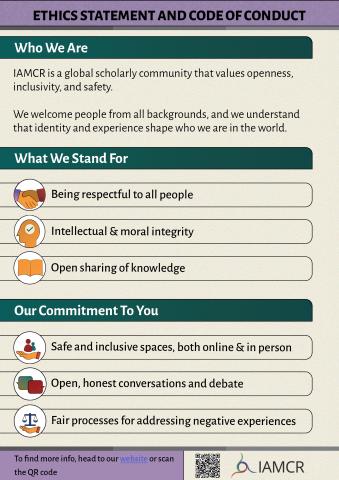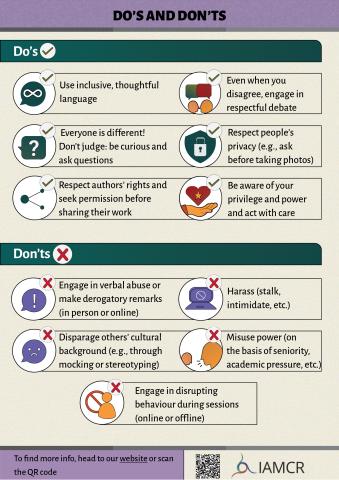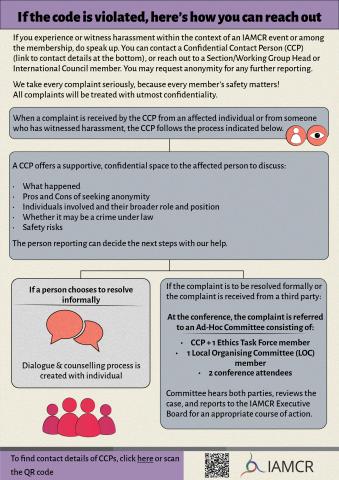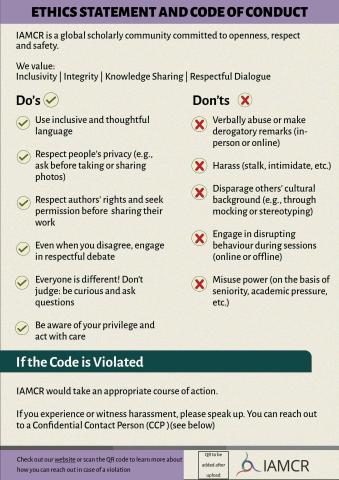Translations available in Chinese, French and Spanish.
Check our single page summary at the bottom of the article.
Accessible text version (for screen readers)
ETHICS STATEMENT AND CODE OF CONDUCT
Who We Are
- IAMCR is a global scholarly community that values openness, inclusivity, and safety
- We welcome people from all backgrounds, and we understand that identity and experience shape who we are in the world
What We Stand For
- Being respectful to all people
- Intellectual & moral integrity
- Open sharing of knowledge
Our Commitment To You
- Safe and inclusive spaces, both online & in person
- Open, honest conversations and debate
- Fair processes for addressing negative experiences
DO’S AND DON’TS
Do’s
- Use inclusive, thoughtful language
- Even when you disagree, engage in respectful debate
- Everyone is different! Don’t judge: be curious and ask questions
- Respect people’s privacy (e.g., ask before taking photos)
- Respect author’s rights and seek permission before sharing their work
- Be aware of your privilege and power and act with care
Don'ts
- Engage in verbal abuse or make derogatory remarks (in person or online)
- Disparage others’ cultural background (e.g., through mocking or stereotyping)
- Harass (stalk, intimidate, etc.)
- Misuse power (on the basis of seniority, academic pressure, etc.)
- Engage in disrupting behaviour during sessions (online or offline)
IF THE CODE IS VIOLATED, HERE'S HOW YOU CAN REACH OUT
If you experience or witness harassment, speak up. You can contact a Confidential Contact Person (CCP) (link to contact details at the bottom), or reach out to a Section/Working Group Head or International Council member. You may request anonymity for any further reporting.
We take every complaint seriously, because every member’s safety matters!
All complaints will be treated with utmost confidentiality.
When a complaint is received by the CCP from an affected individual or from someone who has witnessed harassment, the CCP follows the process indicated below.
A CCP offers a supportive, confidential space to the affected person to discuss:
- What happened
- Pros and Cons of seeking anonymity
- Individuals involved and their broader role and position
- Whether it may be a crime under law
- Safety risks
The person reporting can decide the next steps with our help.
If a person chooses to resolve informally:
Dialogue & counselling process is created with individual
If the complaint is to be resolved formally or the complaint is received from a third party:
At the conference, the complaint is referred to an Ad-Hoc Committee consisting of:
- CCP + 1 Ethics Task Force member
- 1 Local Organising Committee (LOC) member
- 2 conference attendees
Committee hears both parties, reviews the case, and reports to the Executive Board for an appropriate course of action.
For more information or contact details of CCPs, click here.
Single page summary
This single page summary provides an overview of the Code of Conduct and a list of Do's and Don'ts that can be downloaded and used during IAMCR events or presentations.














